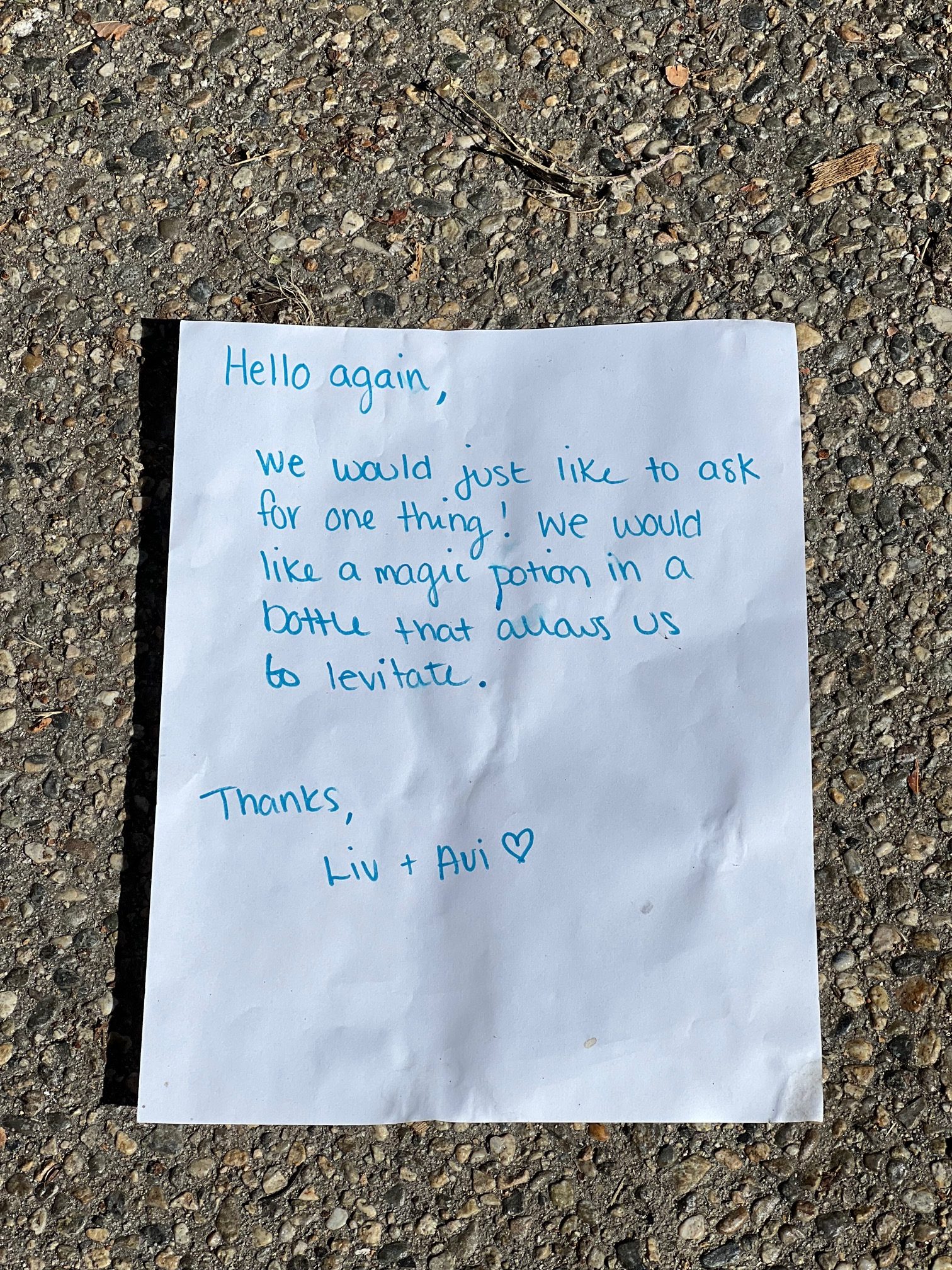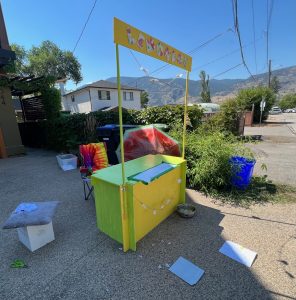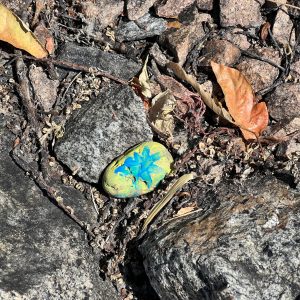
There was a time when I did believe in magic. And Santa Claus, the tooth fairy and religion. I loved fairy tales and Greek mythology, and any story about history.
"Imagination is more important than knowledge. For knowledge is limited, whereas imagination embraces the entire world, stimulating progress, giving birth to evolution." – Albert Einstein
When I was five or six, my dad told us he had eyes in the back of his head and could see what we were doing. This was proven when we would hold up fingers behind his head and he would correctly guess the number. Magic. Of course, my mother was tipping him off by how she held her cigarette between her fingers, or even more nefariously by slipping in words in Mandarin as she murmured “Sure, he can see” (“sure” meaning four, or was it five?).
The magic wasn’t real.
By the time I got to college, I earned some money baby-sitting and realized how much that childhood world view had faded when the children in my charge wanted me to play “make believe” with them. They had the entire yard populated with characters, all with long back stories, and yet I could conjure up nothing from my imagination to join in.
The immediacy of assassinations, war, strikes and protests, growing older and going to medical school also crowded out magic–music or drugs notwithstanding. It was all political history, current events, science, the realities of life and death–I didn’t read a novel or a poem for years. Give me the wonders of the universe or biochemistry instead. The beloved Tolkien books—meh. Magical realism—not for me. Star Wars—give me a break. Harry Potter—not even.
Eventually I relented and started reading more widely. Experience also made me appreciate how essential myths and stories are and how science and knowledge by themselves are not enough, overshadowed as they are by relationships, beliefs and survival needs. I am discouraged to see surveys that show how many people believe in angels but not human-caused climate change, which looms over all as our existential threat. Knowledge of how to confront this threat is not the barrier—it is “political will”. Magical thinking doesn’t help: a superhero is not going to swoop in and save the day. But using story to create an ethos supporting science-informed change might. Calling all artists, teachers, families, civic groups, politicians, spiritual workers and, okay, magicians, to do their part!
As I was thinking about this prompt, I found a random piece of paper that must have floated onto my driveway, lying face down. The other side read, “Hello again, We would just like to ask for one thing! We would like a magic potion in a bottle that allows us to levitate. Thanks, Liv and Avi (with a drawn heart)”. Those are the names of the little girls who run a lemonade stand across the street, in front of their house. They let me choose a rock painted hopefully with a blue flower from their assorted wares one day. If only I did have a magic potion that would lift them up in the hard years to come. I could also tell them, “Don’t lose the heart”.





Beautiful and profound, Khati, especially the wish of Liv and Avi. Storytellers are essential to make a “magical” connection between people’s beliefs and reality, and education today is woefully inadequate to stimulate the imagination. I feel very fortunate in my undergraduate education, when I did a lot of reading, both broad and deep. All English majors had to take a year-long course, “Basic Myths of Western Civilization,” taught by Miss Pope, the department head. Sounds quaint by today’s standards, but it was terrific. These days the class would rightfully be expanded to include stories of many other cultures. That said, my mind often goes back to what I read in that course and how impactful those magical stories can be.
Thanks Marian. You speak to the importance of the liberal arts and humanities. I toyed with the idea of folklore and mythology as a major before I settled on visual and environmental studies and threw that over for pre-med. Covering the waterfront. Learning how it all fits together is a lifelong quest. I appreciate it more over time, as I also do engineers!
Mare, This old English major is envious – Basic Myths of Western Civ is a course I wish I’d taken.
Once asked why I studied literature. I heard myself answer, “For the connections.”
Thanx Khati, for as always your well written and insightful piece.
If only . . .
Yes, if only.
What a beautiful, thoughtful story, Khati. I would like to think that believing in fact –like climate change — and enjoying the concept of magic in one’s readings is both possible and enlightening. And, indeed, I have fashioned my own current, eclectic reading around this acceptance. My sense is that you, too, also accept it. I think we both want scientists to continue to advise us on climate change and yet be able to tell children “Don’t lose your heart.”
Yes John, we have to use everything we have to change and adapt–science and hope and caring for each other and the world we live in. Divided we fall.
This is a wonderful commentary on magic. I love the “act” that your parents did to convince you that your father had eyes in the back of his head. And I also love the piece of paper that floated onto your driveway asking for a magic potion. Those make great bookends to the rest of your insights.
Thanks Suzy. It was a bit of serendipity when that paper floated onto my driveway just as I was trying to figure out what to do with the “magic” prompt, and did help tie things together for me.
Your whole story is full of magic, Khati. At various times of your life when you did or did not believe and how, at the end, it floated back into your life, perhaps when you needed it most. You want to warn those little girls, but for the moment, let them keep their innocence. They will need it to brace them for what comes ahead! A magical story, indeed.
I’m glad this story wove its magic for you Betsy. Thanks. It evolved as I was writing—as those things do. Sometimes you get unexpected insights, twists and turns.
I love this story, Khati. It’s sad but true that the magical possibilities and imagination of childhood give way to the harsh realities of life. The note is so sweet and innocent. I hope they are able to be lifted up over the awful realities ahead of them, given that we live in a country in which many believe in a different kind of magical thinking. Thanks for a great and unique take on this prompt.
I was thinking of you when I wrote this, and how much I admire your work with kids. It helps keep the door to imagination and hope open.
Aw! I wanted your story to go on. At least long enough for you to figure out a way to satisfy the longings of these two lemonade vendors. I so want them to have their wishes come true. (Your story hooked me.)
I want their wishes to come true as well.